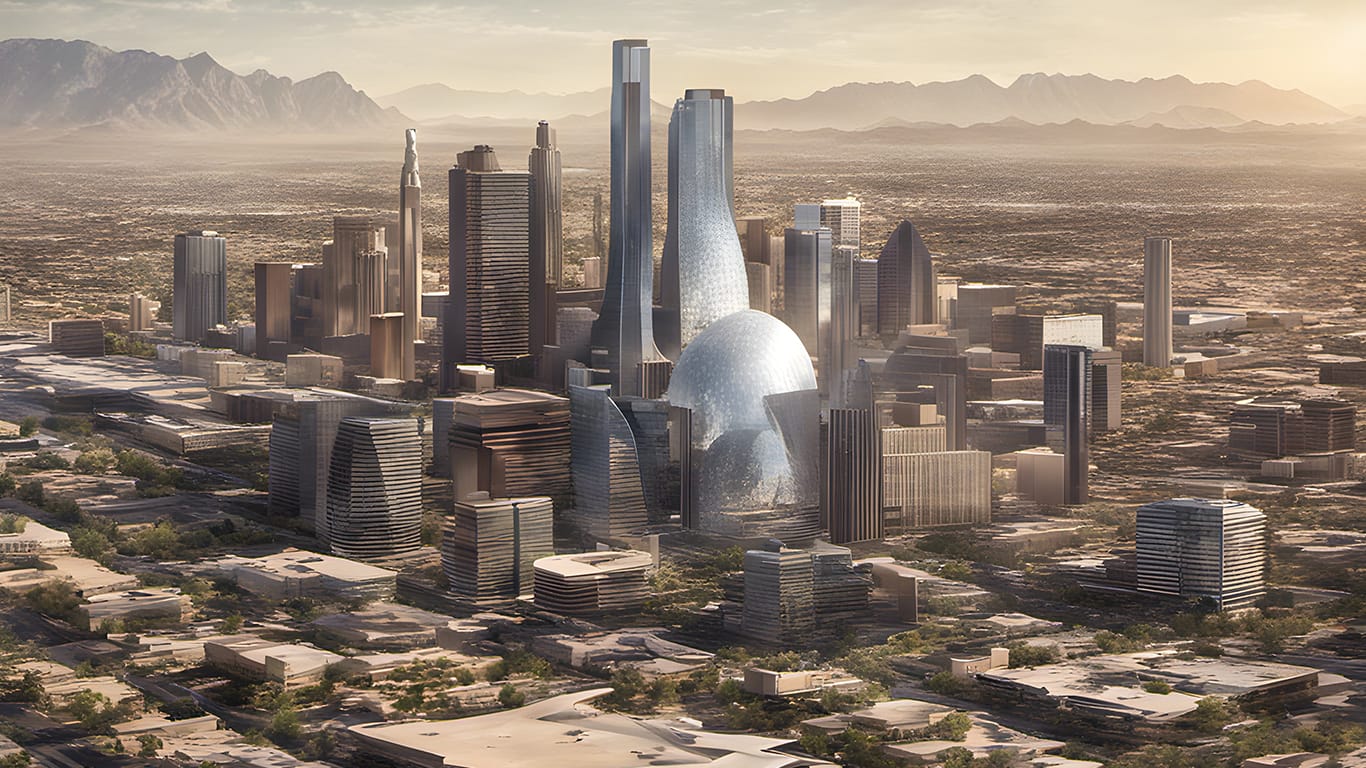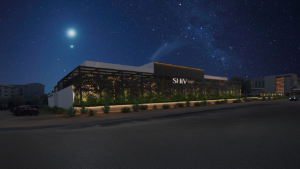The new age of urbanism is taking shape all around us. Across the world, futuristic cities straight out of SciFi movies are being built from the ground up. But at home, news of technological breakthroughs, infrastructure challenges, and climate dilemmas means that wearing a vague “smart city” badge no longer cuts it. While the American city of tomorrow might not yet mean commuting by jetpack and holding hologram phone conversations, some major hubs are making us believe we’re not too far off. So, how prepared are our cities for the future and which are the most future-ready cities?
LEARN MORE: Which states send the most workers to Arizona? Here’s a look
To find out, Point2 analyzed the 100 largest cities in the United States to reveal which are the most future-ready. We considered 30 key metrics distributed across five categories, each shedding light on a different aspect of urban innovation: Business & Technology; Internet Connectivity; Environment & Sustainability; Transit & Mobility; and Economy & Demographics.
This report aggregates the factors that reflect what cities are working on today for a better tomorrow — from the obvious (like internet access, tech job openings, and air quality) to key indicators that can help paint a wider picture of what’s yet to come (such as the number of recent invention patents and building permits issued so far this year).
Most Future-Ready Cities in the United States
- The country’s most future-ready large city is Seattle, WA. The city ranks particularly high when it comes to metrics such as the number of startups, invention patents, annual median income, the influx of population with a bachelor’s degree, and even bikeability.
- San Jose, CA is the second-most innovative city. The Silicon Valley sweetheart is followed by Denver, CO, San Diego, CA, and Austin, TX.
- Check out the full list of the 100 largest cities ranked by how future-ready they currently are.
The 5 Spheres of Future Readiness
- Business & Technology: A city's commitment to fostering technological advancement is an indicator of its commitment to the future. California cities take the podium in this sense, with San Jose and San Diego excelling in terms of invention patents submitted between 2018 and 2022, and San Francisco having the second-most startups among the largest 100 cities (after New York City).
- Internet Connectivity: Wide access to the internet is crucial in the developing digital age. Sacramento, CA, and two Texas cities one might not expect, Plano and Garland, are the most well-connected U.S. cities. This is generally due to a 100% coverage of high-speed mobile broadband, and large shares of households with internet access.
- Environment & Sustainability: As climate change poses more questions, prioritizing environmental sustainability makes all the difference. Electric and alternative fuel stations put Seattle, Sacramento, and San Diego on the sustainability map; Washington, D.C., and NYC claim the most green-certified buildings.
- Transit & Mobility: The dawn of a new transportation revolution is defined by urban hypermobility. Bike-sharing programs make moving around Minneapolis, MN, San Francisco, and Seattle easier than in other urban centers; Atlanta saw more than 45 million enplanements — even more than Chicago and NYC airports.
- Economy & Demographics: As long as the economy is strong enough to provide the necessary resources, a diverse and skilled population can drive innovation. In Arlington, VA, Fremont, CA, and Gilbert, AZ, the future is bright due to a cocktail of high median income mixed with low unemployment and poverty rates.
Seattle, San Jose & Denver Spearhead American Innovation
It takes a lot to be a future-ready city in the second-most innovative country in the world, with some U.S. areas already synonymous with advancement and ideation.
Click on the buttons below to see today’s most future-ready cities, as well as those that lead the five different spheres of innovation in our index:
Living in Seattle, WA, means living in the most forward-looking place in the United States, scoring high across all five innovation categories. Despite local governments scrambling to balance the needs of today and the demands of tomorrow among budget restraints, understaffing, perpetual paperwork, and overall uncertainty, the future waits for no one— and Seattle is living proof of this.
Not only is it the fastest-growing city for technology and information BAs, but Seattle is also constantly looking for ways to improve urban living — starting with its booming downtown. It’s also among the few using AI to envision what the city might look like at its full potential. Household names like Microsoft, Amazon, and Starbucks further solidify Seattle's status as one of the world’s top business and tech spots. And to top it all off, the urban center balances it all out with natural beauty.
Next, it’s no surprise that San Jose lands second place since technology adoption is a must in pursuing the future-ready label. High score aside, there’s more to Silicon Valley's largest urban center than meets the eye. For instance, one of the country's most dynamic cities is working hard to improve its urban planning, which is consequently inspiring think pieces dedicated to why San Jose is the perfect model for an American city of tomorrow— mainly due to density-embracing housing development reminiscent of European “15-minute cities”.
Denver came in third, and nothing spells “future-ready” more than being an aerospace hub. As one of the relatively recent tech and business centers, Denver is starting to face challenges similar to those of more established ones, such as San Francisco or Los Angeles, in terms of rising housing costs. Fortunately, the city is familiar with thought forums tackling and brainstorming solutions for this issue, as well as climate change, urban design, and sustainability.
At the other end of the innovation spectrum lie Laredo, TX, and North Las Vegas, NV. In particular, Laredo fumbles when it comes to Internet Connectivity, as just 63,700 homes have access to the internet and less than 10% fixed broadband coverage. Similarly, North Las Vegas ranks the lowest in the Business & Tech category because of few tech job openings, even fewer invention patents filed, and no startups.
Business & Technology: San Jose Is the Blueprint for Invention; California Awarded $1B by National Science Foundation
Five of the 10 cities that rank highest in terms of Business & Tech are in California. San Francisco, San Jose, and San Diego take the podium spots, with Fremont and Oakland not far behind in 7th and 8th place.
Already a mecca for ideation, San Francisco is second only to NYC in the number of startups. At the same time, San Jose sets itself apart with the highest share of STEM jobs; what’s more, between 2018 and 2022, San Jose also filed for the most invention patents — nearly 35,000. It is followed by Houston, TX (27,200 patents) and San Diego (25,000).

Clearly, innovation is in the California air as it enjoys the highest amount of funding from the National Science Foundation (NSF). In its mission to support science and engineering in all 50 states, the NSF awarded the Golden State more than $1 billion in 2022, which was almost double what the state of New York received.




